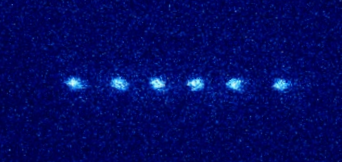 |
Happy to announce the first ion crystals of Ba+ observed in our unconventional ion trap. Congrats to all the people that worked on the project! |
LAST NEWS
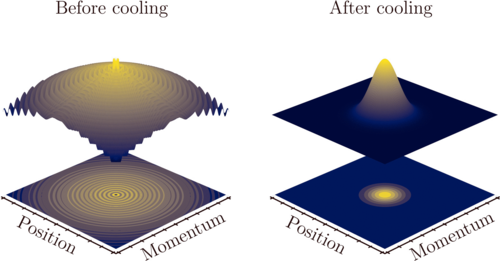 |
Cooling neutral atoms in optical traps can be a difficult task under some experimental conditions, like when optical trapping potentials are state-dependent. We report on a theoretical study showing that cooling can be achieved even if the internal states of the atoms experience different potential depths as long as a well-tailored frequency sweep is applied to the cooling laser. We develop a master rate equation and a Monte Carlo simulation for atoms of Li and Yb trapped in optical lattices and tweezers and we find that the average occupation number of the vibrational levels is drastically reduced under feasible experimental conditions. Our findings provide an alternative cooling scheme that can be applied in principle to any particle that is optically trappable, e.g. atoms, molecules or ions, and can provide a faster route to cooling atoms to condensation or degeneracy. F. Berto, et al. |
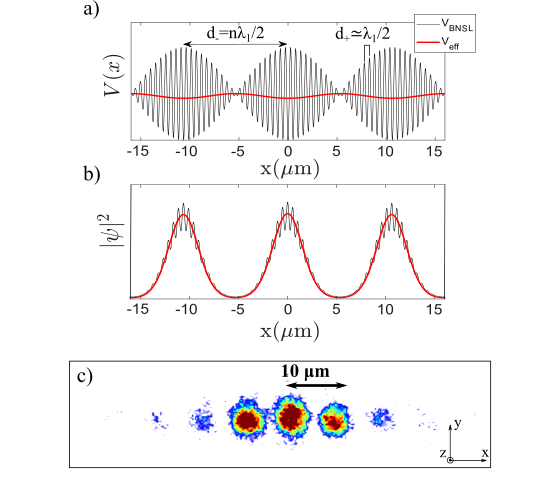 |
We report the experimental realization of a new kind of optical lattice for ultra-cold atoms where arbitrarily large separation between the sites can be achieved without renouncing to the stability of ordinary lattices. Two collinear lasers, with slightly different commensurate wavelengths and retrorefected on a mirror, generate a superlattice potential with a periodic \beat-note" profile where the regions with large amplitude modulation provide the effective potential minima for the atoms. To prove the analogy with a standard large spacing optical lattice we study Bloch oscillations of a Bose Einstein condensate with negligible interactions in the presence of a small force. The observed dynamics between sites separated by ten microns for times exceeding one second proves the high stability of the potential. This novel lattice is the ideal candidate for the coherent manipulation of atomic samples at large spatial separations and might find direct application in atom-based technologies like trapped atom interferometers and quantum simulators. L. Masi, et al., |
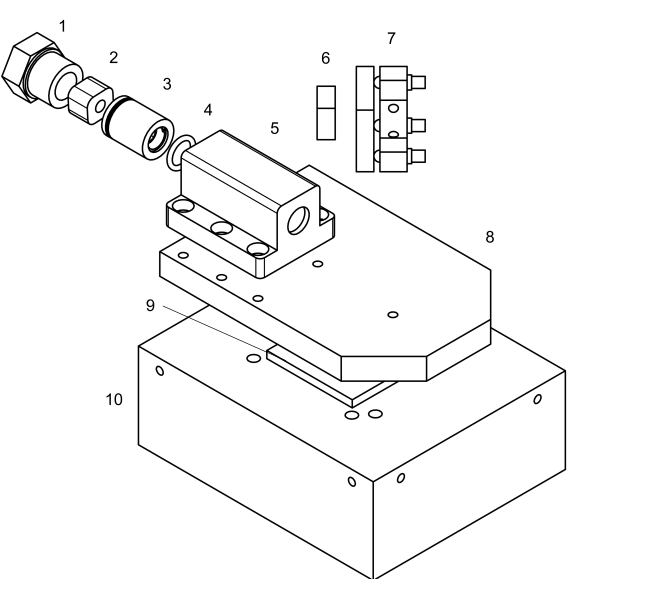 |
We report on our patented Littrow-type external cavity diode laser (ECDL) in which the coarse wavelength adjustment obtained via the rotation of a diffraction grating is decoupled from the fine tuning of the cavity modes done with changes in the external cavity length. This design improves the robustness of the ECDL emission against misalignment and hysteresis, even for the case of long external cavity lasers typically employed in optical clock experiments. L. Duca, et al. |
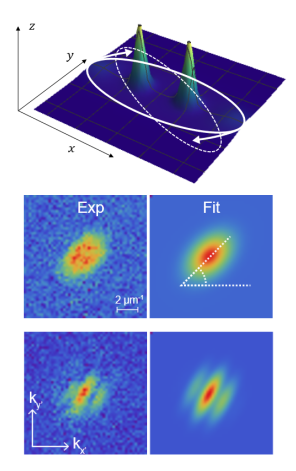 |
A key manifestation of superfluidity in liquids and gases is a reduction of the moment of inertia under slow rotations. Non-classical rotational effects have been searched for a long time also for the elusive supersolid phase of matter, in which superfluidity coexists with a lattice structure. Here we show that the recently discovered supersolid phase in dipolar quantum gases features a reduced moment of inertia. We study a peculiar rotational oscillation mode in a harmonic potential, the scissors mode, already employed for superfluids. From the measured moment of inertia, we derive a superfluid fraction in analogy with the original definition by A. J. Leggett. The superfluid fraction is different from zero and of order of unity, providing direct evidence of the superfluid nature of the dipolar supersolid. A qualitative comparison with the original theoretical model supports the observation of a large superfluid fraction close to the transition from the Bose-Einstein condensate (BEC) and the supersolid.
L. Tanzi, et al. |
